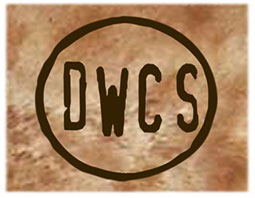The 'Brand' is unarguably the most valuable element in the advertising and marketing world. It is the name, the logo, the trademark, the corporate colours, its qualities, its characteristics and is the perceived attitude that identifies a product, company or even an individual. It is an image by which the audience differentiates the product from all others.
The term 'Brand Management' began in 1925 when a certain Proctor & Gamble employee, Neil McElroy, wrote a now famous memo to the P&G President. An extremely fed-up McElroy complained that while working on the Carnay Soap advertising he not only had to compete with soaps from competitors, but also with Ivory, P&Gs own flagship product.
The memo was no doubt a turning point in marketing history, arguing (and subsequently succeeding) that a brand required a dedicated team devoted to building the public's perception of that product by working specifically on the advertising and marketing related to it, irrelevant of all other products, including Ivory, and the two products should be targeting two very distinct and different markets.
So thanks to good old Neil (who later elevated to President of P&G) the disciplines of Branding, Brand Management and Product Differentiation were born. Oddly, and somewhat ironically, the same Proctor & Gamble, probably the greatest Brand Managers of all time, later went a full circle and created Multi-Branding, deliberately launching virtually identical products to the same markets, basically to smother and soak up the market share.
The Brand's perception or characteristics are often taken to other levels, to represent another feeling or characteristic that usually isn't obviously connected with the product and these are often called Attitude or Iconic Branding.
A prime example of Attitude Branding is The Body Shop, created by Anita Roddick in 1970 flying a serious flag for environmental change, recyclable containers, natural ingredients, self-esteem in women and a huge campaign focusing on stick-insect fashion models and the affect that has on eating disorders. Oh, and they also sell cosmetics.
Iconic Brands particularly include Designer Clothing (which often have the
labels on the outside!) which are certainly not necessarily well made, value for money or keep you warmer; and cars.
Ferrari's are beautiful, but certainly not inexpensive, economical to run, ultra comfortable and you can only ever use
a smidgen of it's power on British roads.
BUT they may make you feel great, boost your image and, in some cases,
supposedly enlarge one's private parts (interesting that you rarely see a woman driving a Ferrari!).

There have recently been a few examples of 'No-brand' branding such as the Japanese company Muji (which, incidentally, literally means 'no label') and although Muji is a brand, no Muji products are labeled and subsequently they spend very little on their advertising and rely almost totally on 'word of mouth' for their sales.
A strong well-conceived Brand allows a very close relationship between the product and the Target Audience and gives all your advertising a massive head start as you've already achieved recognition and acceptance - hopefully a warm, trustworthy one!